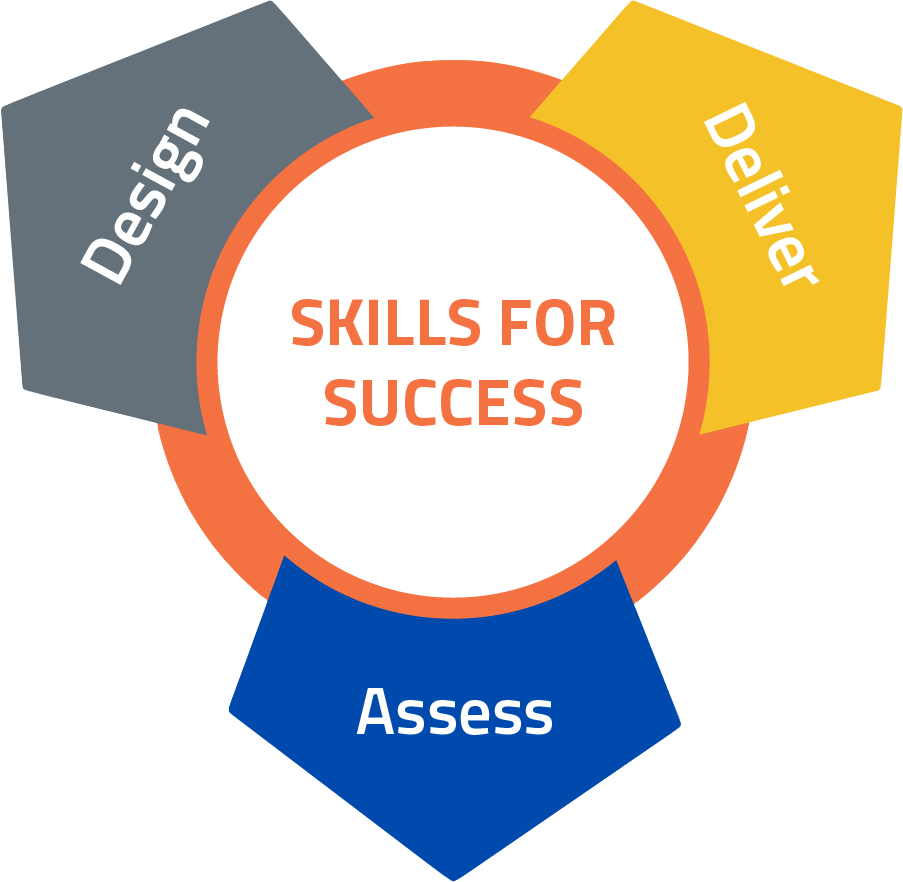Les compétences liées à l’adaptabilité aident les participants à faire face à un changement de manière efficace, à acquérir de nouvelles compétences et à adopter de nouveaux comportements au besoin, à garder en tête leurs responsabilités et les objectifs et à ne pas abandonner lorsqu’ils traversent des moments difficiles.
Les liens suivants comprennent des données de recherche et des données probantes qui viennent soutenir le principe de l’enseignement de compétences liées à l’adaptabilité.
Ressources en français
- OCDE. 2015. Les compétences au service du progrès social : Le pouvoir des compétences socioaffectives. https://doi.org/10.1787/9789264256491-fr
- OCDE. 2018. Résultats préliminaires. Le futur de l’éducation et des compétences. Projet Éducation 2030 de l’OCDE. https://www.oecd.org/education/OECD-Education-2030-Position-Paper_francais.pdf
- SRSA. 2021. Rapport de recherche en appui au lancement de « Compétences pour réussir » : Structure, données probantes et recommandations. Rapport final. https://www.srdc.org/media/553149/sfs-srdc-final-report-fr.pdf
Ressources en anglais
- Chiesa, A., Calati, R., & Serretti, A. (2011). Does mindfulness training improve cognitive abilities? A systematic review of neuropsychological findings. Clinical Psychology Review, 31(3), 449-464. https://doi.org/10.1016/j.cpr.2010.11.003 (login required).
- Dweck, C. (2006). Mindset: The New Psychology of Success. Penguin Random House. New York.
- Hattie, J. (2009). Visible Learning: A Synthesis of Over 800 Meta-Analyses Relating to Achievement. SAGE Publications.
- Holtkamp, M. (n.d.). Leadership skills and the role of adaptability and creativity in effective leadership: A literature review geared toward an integrative model.
- Keith, N., & Frese, M. (2008). Effectiveness of error management training: A meta-analysis. The Journal of Applied Psychology, 93(1), 59-69. https://doi.org/10.1037/0021-9010.93.1.59 (login required).
- Kivunja, C. (2014). Teaching Students to Learn and to Work Well with 21st Century Skills: Unpacking the Career and Life Skills Domain of the New Learning Paradigm. International Journal of Higher Education, 4(1), p1. https://doi.org/10.5430/ijhe.v4n1p1 (login required).
- Kobyli?ska, D., & Kusev, P. (2019). Flexible Emotion Regulation: How Situational Demands and Individual Differences Influence the Effectiveness of Regulatory Strategies. Frontiers in Psychology, 10. https://doi.org/10.3389/fpsyg.2019.00072 (login required).
- Levin, H. M. (2015). The Importance of Adaptability for the 21st Century. Society, 52(2), 136-141. https://doi.org/10.1007/s12115-015-9874-6 (login required).
- Levitin, D. J. (2014). The Organized Mind: Thinking Straight in the Age of Information Overload. Dutton.
- Mithaug, D. E., Martin, J. E., & Agran, M. (1987). Adaptability Instruction: The Goal of Transitional Programming. Exceptional Children, 53(6), 500-505. https://doi.org/10.1177/001440298705300603 (login required).
- Nelson, J. K., Zaccaro, S. J., & Herman, J. L. (2010). Strategic information provision and experiential variety as tools for developing adaptive leadership skills. Consulting Psychology Journal: Practice and Research, 62(2), 131-142. https://doi.org/10.1037/a0019989 (login required).
- Norris, C. J., Creem, D., Hendler, R., & Kober, H. (2018). Brief Mindfulness Meditation Improves Attention in Novices: Evidence From ERPs and Moderation by Neuroticism. Frontiers in Human Neuroscience, 12. https://doi.org/10.3389/fnhum.2018.00315 (login required).
- O’Connell, D., Mcneely, E., & Hall, D. (2008). Unpacking Personal Adaptability at Work. Journal of Leadership & Organizational Studies – J Leader Organ Stud, 14, 248-259. https://doi.org/10.1177/1071791907311005 (login required).
- OECD. (2015). Skills for Social Progress: The Power of Social and Emotional Skills. OECD. https://doi.org/10.1787/9789264226159-en (login required).
- OECD. (2019). OECD Future of Education and Skills 2030: OECD Learning Compass 2030. A Series of Concept Notes. OECD. https://www.oecd.org/education/2030-project/teaching-and-learning/learning/learning-compass-2030/OECD_Learning_Compass_2030_Concept_Note_Series.pdf
- P21. (2011). Partnership for 21st Century Skills (P21). Framework for 21st Century Learning. https://www.battelleforkids.org/networks/p21/frameworks-resources
- Parry, J. H. (1967). Adapting to Teach Adaptability. Mental Health, 26(3), 5-8.
- SRDC. (2021). Research Report to Support the Launch of Skills for Success: Structure, Evidence and Recommendations. Final draft report.
- Whittemore, S. T. (2018). Transversal Competencies Essential for Future Proofing the Workforce.
- Wojnarowska, A., Kobylinska, D., & Lewczuk, K. (2020). Acceptance as an Emotion Regulation Strategy in Experimental Psychological Research: What We Know and How We Can Improve That Knowledge. Frontiers in Psychology, 11. https://doi.org/10.3389/fpsyg.2020.00242 (login required).
- Yeager, D., & Dweck, C. (2012). Mindsets That Promote Resilience: When Students Believe That Personal Characteristics Can Be Developed. Educational Psychologist, 47. https://doi.org/10.1080/00461520.2012.722805 (login required).
Recherche sur l’enseignement de l’adaptabilité
